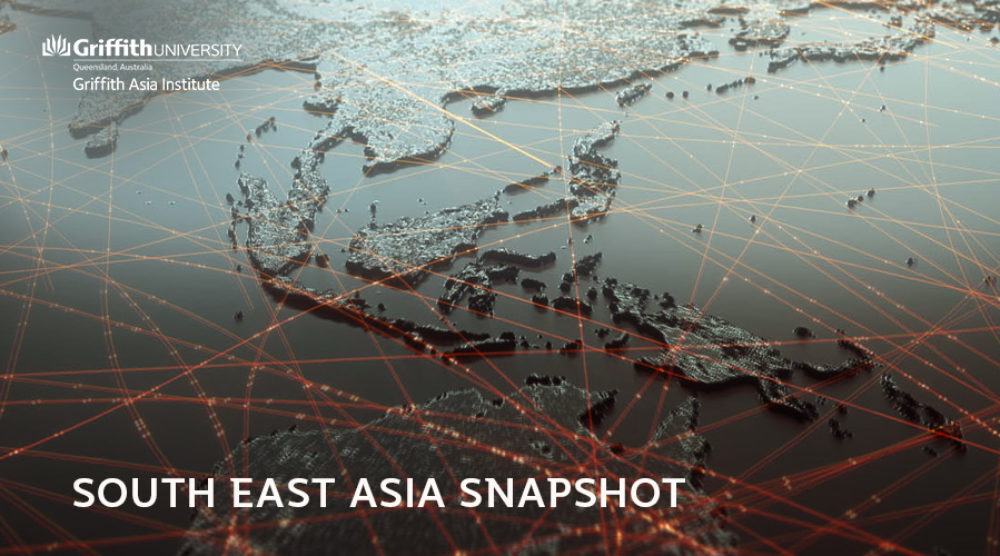A fortnightly snapshot of what’s making headlines in South East Asia.
Thailand’s PM acquires new breadth of powers
Earlier this week Thailand’s cabinet granted Prime Minister Prayut Chan-o-cha sweeping new powers aimed at curbing COVID-19. The Royal Gazette published the announcement confirming the transfer of ministerial powers covering 31 laws to direct control of the former army chief.
The laws include control over immigration, health and procurement, and also several areas concerning security, defence and cybersecurity.
Critics have aired concern that the transfer of power, while said to only be temporary “in order to suppress the [virus] situation and protect the people”, could slide the country further into authoritarianism, as it widens the scope for the state’s surveillance and censorship powers.
The PM’s new breadth of powers come amidst a new surge of coronavirus cases in Thailand this week. Mask wearing is now mandatory in Bangkok and the PM himself was fined for going out without a mask on. Thailand’s vaccination program has been slow compared to regional neighbours—with only 1.2 million people having received their vaccine since the it rolled-out two months ago.
Myanmar-ASEAN 5-point plan
Last weekend ASEAN leaders released a 5-point statement on the crisis in Myanmar calling for the “immediate cessation of violence” and all parties in the country to exercise “utmost restraint”. General Min Aung Hlaing and ASEAN leaders met in Jakarta for the emergency summit.
Five-points of consensus have said to been reached on: 1) ending the violence; 2) constructive dialogue among all parties; 3) an ASEAN envoy to facilitate discussions; 4) acceptance of humanitarian aid; and 5) a subsequent visit to Myanmar by the special envoy.
Human rights groups and citizens of Myanmar have aired criticism of the ‘agreement’, citing a number of shortfalls, including nothing that addresses the political prisoners, no inclusion of voices representing the people of Myanmar and no accountability for the lives lost from the violence.
The emergency ASEAN summit was the first coordinated international effort since Myanmar plunged into political crisis on 1 February, when Aung San Suu Kyi’s ruling National League for Democracy (NLD) was removed from government by the military.
Singapore-Hong Kong travel bubble
Singapore and Hong Kong will commence two-way quarantine free travel on 26 May. Initially planned for last November, the bubble plans were postponed following a surge in coronavirus cases in Hong Kong.
There will be one flight a day to each hub and passengers capped at 200 per flight for the first two weeks of the bubble. Hong Kong is requiring all its residents to be fully vaccinated before travelling, with some exceptions.
The ‘air-bubble’ is expected to deliver a much-needed economic boost to both economies, but particularly for Singapore who was accustomed to large numbers of international visitors pre-COVID. Analysts are also noting that if successful, the bubble will bring a major confidence boost to the multiple industries hit hard by the pandemic and set an example for the region.
AUTHOR
Dr Lucy West is a Senior Research Assistant at the Griffith Asia Institute.








